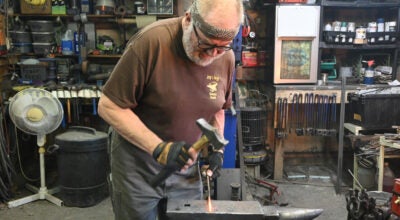Take care of your car in extreme heat
Published 12:00 am Friday, June 29, 2012
With above normal temperatures predicted for the next three days in the Carolinas — reaching more than 100 degrees — July 4th travelers as well as stay-at-homes will encounter possible heat related vehicle failures.
“In the summer, heat is your vehicle’s worst enemy, and the most vulnerable component is the battery, followed by your air conditioner,” said Dusty Holcomb, president of AAA’s 32 Carolina-based Car Care Centers. “Heat dries up fluids and reduces the battery’s ability to function properly. Weak cooling systems often fail in extreme heat.”
Extreme heat causes the water and sulfuric acid fluid mixture in automotive batteries to evaporate, damaging the battery’s internal connectivity and ability to hold an electric charge. AAA recommends getting your battery, air conditioning and other components checked, if possible, before leaving on a long drive trip over the July 4th holiday.
This holiday will see the highest number of North and South Carolina holiday motorists since 2007, when July 4th also fell on a Wednesday. North Carolina is expected to see 1 million motorists; South Carolina 480,900, divided between pre- and post-July 4th.
Heat waves in the last two years increased battery installations more than 70 percent above average, air conditioning repairs more than 50 percent above average and a 40 percent jump in emergency road service calls.
“If it is just 90 degrees outside, it can be 140 degrees or hotter inside your engine compartment,” said Holcomb. “At 104 degrees battery life is reduced to 50 percent and everything gets hotter when the air conditioning is operating.”
Heat also creates danger of escalating temperatures inside vehicles without air conditioning when windows are rolled up. Temperatures can escalate more than 25 degrees in 15 minutes or less.
Some top summer automotive tips include:
• Check windshield wipers for cracked or hardened rubber. Summer thunderstorms can be fierce and poor windshield wipers hamper good vision.
• While tires are still cold, check tire pressure to ensure proper inflation. Look for bubbles, blisters, worn tread and any other weak spots. As heat builds up, tires expand and weak spots can lead to a blowout or flat.
• Check your coolant and anti-freeze levels. Incorrect levels or mixture can cause the engine to overheat. Also check transmission, brake and power steering fluid levels.
Some other tips to prepare vehicles for hot weather include:
• Have your oil checked.
• Have air and oil filters checked.
• Have your pressure system checked. This will show leaks in radiator hoses or head gaskets.
• Look for spidery cracks or wear and tear on your engine hoses and belts, including belt tension. If a hose is spongy, it needs replacing.
• Hot weather often shortens the life of a car battery. Test and replace weak or old batteries. Make sure battery fluids are at the right level.
• If you notice your temperature gauge rising, turn the air conditioning off, open the windows and turn on the heat. You may be uncomfortable but it will force heat away from the engine and buy some time before finding a service station. This is most important in stalled traffic.
• Keep a summer emergency kit in your vehicle with bottled water, reflective red emergency plastic triangles, a cell phone, flashlight with extra batteries, a first aid kit, a hat or umbrella and non-perishable snacks.




